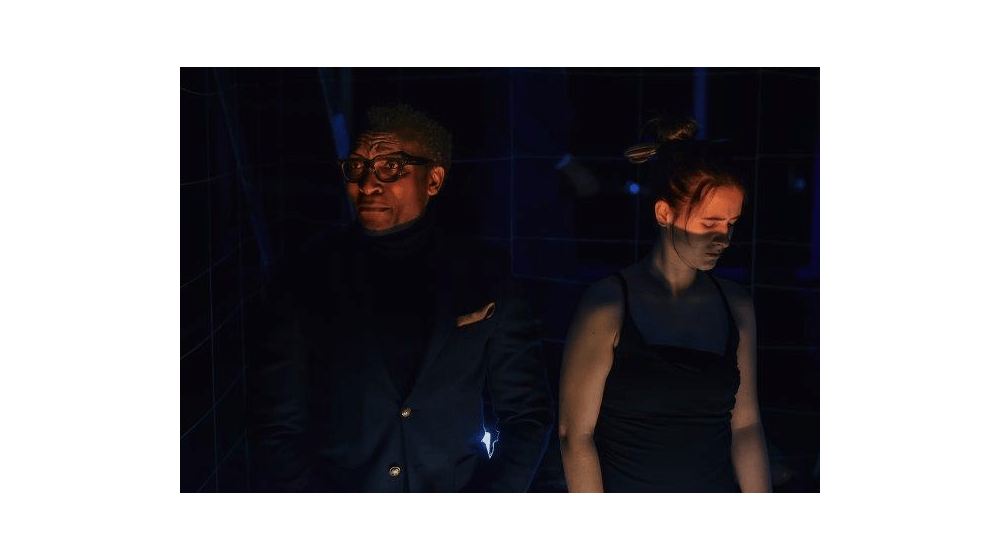As we celebrate International Women's Day, the bodyright campaign continues at the Gallery of the Bosnian Cultural Center in Sarajevo, with the key message: online violence is real. A strong message advocating protection from online violence is communicated in a new way - through the Zea Mays artistic performance, as part of the efforts of the United Nations Population Fund (UNFPA) to make the digital world a safer place for everyone.
The author of the performance, Ana Marija-Tomić, explains that "Zea Mays" is a performative expression focusing on the position of women and girls in the online space, with an emphasis on the female body, including the audience in the performance.
"Social awareness and critical reflection are important to us. The goal is to become aware and to know that you can take action in response to that problem," Tomić said.
The artist has emphasized that she is very grateful for the opportunity to participate in the bodyright campaign which demands that images of our body be given respect and protection on the Internet, in the same way as music, film and even corporate logos are protected, and that powerful messages can be sent through art.
"I was very happy when my team and I won the project UNFPA Girl Advance Lab of 2022 - Not All Violence is Physical with the "Zea Mays" installation. Before that, I didn't realize how important it was, because it is unfortunately normalized in our society. Now we have more information and through awareness and sensitization, we can demand rights to our bodies in the online environment as well. Art is a powerful medium and can be used to send a powerful message," Tomić said.
UNFPA Representative for BiH John Kennedy Mosoti has emphasized that there is no place for violence against women and girls in any space and that the bodyright campaign was launched to demand protection from violence on the Internet.
“UNFPA is committed to ending all violence against women and girls –in both the real and virtual world, and that's why we launched bodyright, a new “copyright” label ⓑ to assert and demand protection from online violence. This advocacy campaign will allow people to raise their voices and encourage digital companies, social platforms, content-sharing sites and policymakers to take virtual violence and online abuse in general as seriously as copyright infringements,” said Mosoti.
Midhat Efendira, the expert advisor for programmes at the Bosnian Cultural Center, said that the Center wants to be a platform that will give courage to young artists to express their right to freedom of expression, opinion, and action.
"Artists all over the world are looking for new ways to say ‘no’ to inequalities and invisibility of marginalized categories. On the occasion of Women's Day, we cast a light on the abuse of women in the online space, which sometimes seems less important than other forms of violence. The Bosnian Cultural Center wants to be a platform that will instill courage in young artists to express their right to freedom of expression, opinion and action", said Efendira.
The creative team of the "Zea Mays" installation also includes Rijad Kaniža, who is in charge of sound design, Damir Čobo, a professional actor and lighting designer, and Emina Lagumdžija, who is in charge of visual identity.
"The key is to face your fears, overcome them, talk about it, and be supportive, not just a passive observer. We, the young people, can and should be each other's support, and not be accomplices through miscomprehension and avoidance", the author of the performance, Ana Marija Tomić, said in the end.
Bodyright is designed to spark an important discussion about how women, girls, racial and ethnic minorities, the LGBTQ+ community, and the most marginalized are victims of belittling, exploitation, and rights violations online and why so little is being done to stop it.
The backbone of this online and social media campaign is the bodyright symbol, which can be added to any photo of the human body shared on any digital platform. In addition, there is an invitation to sign the UNFPA Global Citizen petition, which asks companies, platforms and policymakers to take the denigration of human beings, misogyny and online violence as seriously as copyright infringement.
Bodyright is the right to your body, both online and in the real world.


